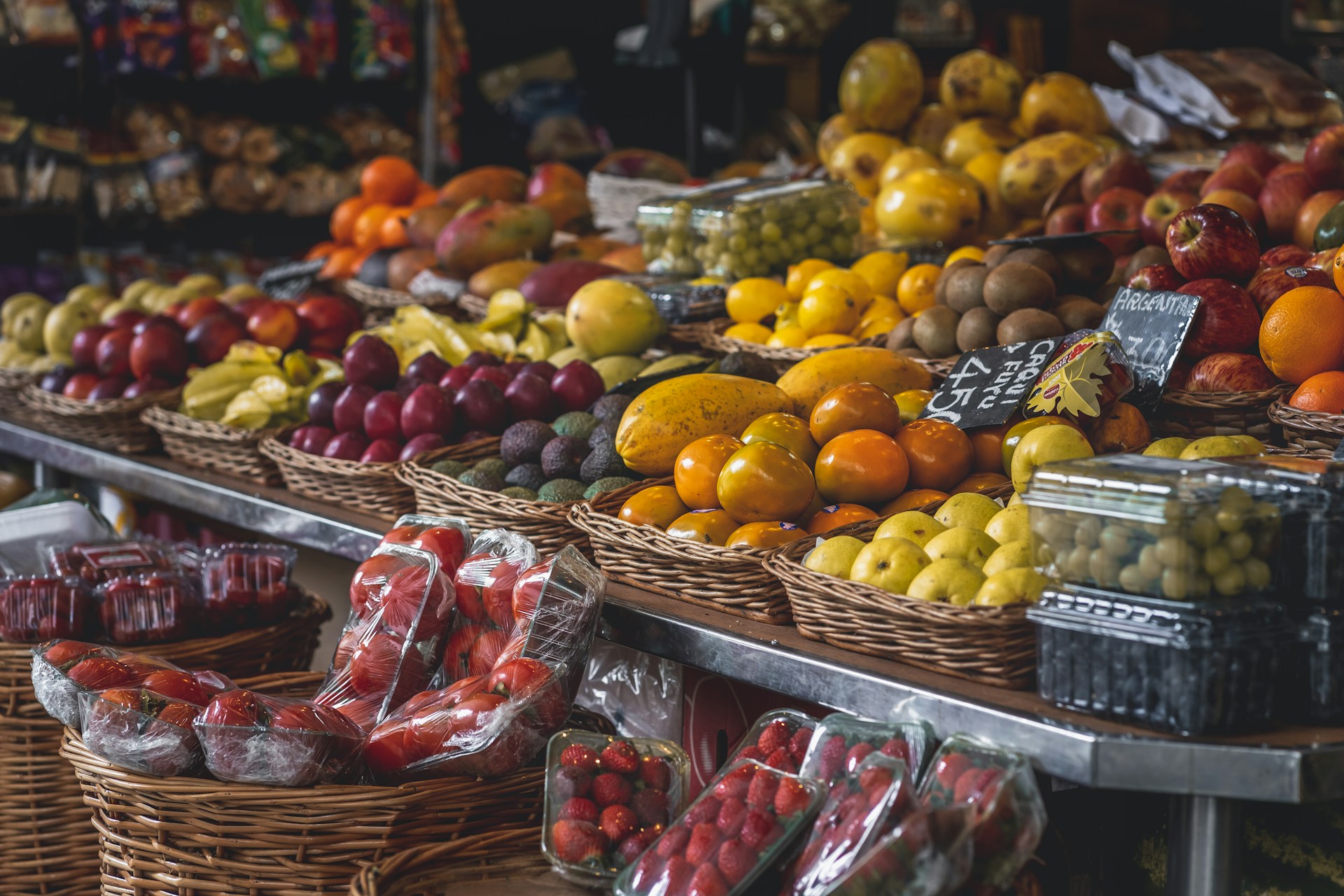Ensuring quality in the produce retail sector is a critical aspect of business success.
Staff training plays an indispensable role in this context.
Through effective training, personnel can develop an in-depth understanding of quality standards and processes.
This enables them to provide top-notch service, ultimately increasing customer satisfaction and loyalty.
This article discusses practical tips and strategies for implementing effective staff training programs in produce retail.
These insights are gained from industry experience and can help businesses elevate their performance.
Staff Training Tips For Quality In Produce Retail
1. Provide product knowledge training regularly.
Regular product knowledge training is an essential part of achieving and maintaining quality in a produce retail environment.
It’s not enough for your staff to simply know the names of the fruits and vegetables they are selling; they need to understand the unique characteristics of each product, including its taste, texture, optimal ripeness, and how it should be handled and stored.
Product knowledge training provides this information, and much more.
But why is it crucial to provide this training to your staff on a regular basis?
The answer is simple: the world of produce is ever-changing, with new varieties, growing methods, and usage ideas constantly emerging.
An apple is not just an apple; it could be a tangy Granny Smith, a sweet Fuji, or a crisp Honeycrisp.
Fruits and vegetables can also come from different regions or farms, and they may be grown organically or conventionally.
Each of these factors can impact a product’s flavor, texture, shelf life, and cost.
Your staff needs to stay abreast of these constant changes so they can provide accurate and helpful information to customers.
They also need this information to handle and store the products properly, ensuring that they reach customers in the best possible condition.
This, in turn, promotes customer satisfaction and loyalty, which are key to the success of any retail operation.
So how can you effectively provide product knowledge training regularly?
One way is to schedule regular training sessions – for example, once a week or once a month – where you discuss new products, provide updates on existing ones, and share handling and storage tips.
You can also include product information in your regular staff communications, such as emails or newsletters.
Another option is to work with suppliers or produce experts who can provide specialized training sessions.
Regular testing or quizzes can help ensure that the knowledge has been absorbed and retained.
And finally, encourage your staff to learn on their own by reading up on different fruits and vegetables, trying them out, and sharing their learnings with the team.
2. Teach Importance of Careful Handling Procedures
Produce handling procedures are a crucial part of maintaining the quality and integrity of the products in your retail store.
Proper handling can ensure that the produce remains fresh, attractive, and safe for customers to consume.
Without proper training, employees may inadvertently damage the produce, leading to a significant loss of revenue and reputation.
Effective training on careful handling procedures can not only reduce wastage but also enhance customer satisfaction and repeated business.
When commodities are carefully handled, there is less likelihood of damaging them, meaning fewer instances of unsalable bruised or squashed fruits and vegetables.
Another advantage of proper produce management is maintaining the visual appeal of your store.
Customers are more likely to buy produce that looks fresh and undamaged, so effective handling techniques can directly boost sales.
Additionally, thorough training in handling procedures should also encompass hygiene and food safety practises.
This is vital as unsanitary handling can lead to outbreaks of foodborne illnesses, both damaging to your store’s reputation and potentially resulting in legal repercussions.
Hygiene training should inform employees about the importance of regular handwashing, refraining from work when sick, and keeping the store clean and well-maintained.
A detailed guideline for handling different types of produce – each with their unique requirements – should also be a central part of the training program.
For instance, soft fruits like berries require different handling methods than hardier vegetables like carrots or potatoes.
To reinforce the training, printed instructions in the form of signs or posters in the store can continually remind employees about the appropriate handling methods.
Finally, allow for a feedback system where employees can share their ideas or difficulties concerning the handling procedures, creating an environment of continuous improvement.
Regular refresher courses are also helpful to ensure that staff do not forget the practises over time and continue to deliver good quality products to your customers.
3. Demonstrate exemplary customer service skills.
In the ever-competitive retail industry, customer service sets apart the winning businesses from the rest.
Gone are the days where customers just picked up the products and paid at the till; they now value an immersive shopping experience, and this is where exemplary customer service skills come into play.
Therefore, continuous training in customer service skills is imperative in maintaining the quality of service in produce retail.
Customer service is more than just a friendly smile; it includes active listening, efficient problem-solving, and positive interactions.
Your agents need to understand that every customer interaction is an opportunity to build a relationship and possibly convert a one-time shopper into a lifelong loyal customer.
Training your produce retail staff in empathy and emotional intelligence will enable them to interact with customers humanely and genuinely, creating an emotional connection.
The ability to handle complaints is a critical aspect of customer service.
Employees who are trained to handle complaints calmly and respond in a timely manner not only appease an unhappy customer but also show that your business values its customers and their satisfaction.
From handling the products with care to storing them appropriately, every staff member in your produce retail business plays an essential role.
However, the real test of quality comes from how well they interact with customers.
Instilling a customer-centric mindset among your staff can turn average shopping trips into pleasurable experiences, leading to repeat business and prolific word-of-mouth marketing.
Encouraging your staff to take ownership and responsibility for their interactions with the customers promotes proactive behaviour instead of reactive responses.
This proactivity can turn an ordinary interaction into a meaningful and memorable experience, making the customer feel valued and recognized.
To encourage such behaviour, employees should be reassured that the management is with them in every decision they make to enhance customer satisfaction.
Remember, the way your employees treat your customers is often a reflection of how they are treated within the organization.
Therefore, cultivating a positive work environment will inevitably lead to better interactions with the customers.
Investing in regular and structured customer service training is not an expense, but a profitable investment in enhancing the overall shopping experience and, in turn, your produce retail business’s success.
While it might seem overwhelming to consistently train your staff in providing exemplary customer service, remember that it’s a step-by-step process that, with time and effort, will definitely yield desirable outcomes.
4. Establish Understanding of Proper Storage Techniques
Proper storage techniques are vital for maintaining the quality of the products in a produce retail setting.
A significant part of staff training should be focused on helping team members understand and implement the right storage procedures.
Different produce types require different storage conditions, and it’s necessary for retail workers to know this.
For example, some fruits and vegetables need to be stored at room temperature, while others require refrigeration.
Providing your staff with this knowledge helps ensure that the produce stays fresh as long as possible.
Incorrect storage can not only spoil the produce faster but also put off customers who notice the poor quality.
Ensuring that your team has a solid understanding of proper storage techniques will increase product longevity and customer satisfaction.
Beyond understanding the right storage conditions for different items, employees also need to know how to manage stock rotation.
In the realm of produce retail, it’s essential to follow the ‘First In, First Out’ (FIFO) methodology.
Using FIFO means that the items which were stocked first should also be the ones sold first to enhance freshness and reduce waste.
Moreover, staff should be trained on how to handle products during restocking.
They should learn how to remove older stock, add new stock at the back or bottom, and then replace the older stock in front without causing any damage to the produce.
Another important facet of proper storage techniques is understanding the correct temperature and humidity settings for different produce.
Excessive or insufficient humidity can lead to faster spoilage and affect product quality, so it’s essential to have a proper temperature and humidity control mechanism in place.
Establishing a clear understanding of proper storage techniques with your team is therefore a must for maintaining produce quality and enhancing customer satisfaction.
It contributes towards the overall success of a produce retail business.
5. Train team on meticulous visual inspections.
In the world of produce retail, the skill of meticulously visually inspecting each item can truly make or break the success of your store.
Training your team in this art is therefore not only beneficial, but crucial to ensuring the quality of your stock and the satisfaction of your customers.
This training goes beyond a basic once-over of the product; it requires teaching your staff exactly what to look for in terms of colour, texture, size, and freshness.
Items that don’t meet your store’s high standards should be disregarded, ensuring that only the best produce makes it to your shelves.
This level of attention to detail can significantly enhance the perceived value of your produce in the eyes of your customers, leading to a greater sense of trust and loyalty towards your store.
Besides just looking at the items, it’s crucial to teach your team how to handle each item correctly during their inspections.
Some produce may be more delicate than others, and incorrect handling can lead to unnecessary spoilage and waste.
Therefore, the training on visual inspections should also include proper techniques for handling each type of produce in your store.
Trainees should be given ample time to practice these skills under the guidance of a more experienced staff member, allowing them to learn and improve in a secure and supportive environment.
This painstaking process of training might seem time-consuming, but the benefits in terms of product quality, customer satisfaction, and reduced waste are truly worth it.
The key to successful training in meticulous visual inspection lies in repetition and consistency – the more your team practices, the more second nature this skill will become.
This consistency not only ensures that they take this part of their job seriously but also forges a level of care and pride in their work.
In the long run, training your team in this way can contribute towards boosting employee morale and enhancing the overall success and reputation of your produce retail store.
Don’t let the the small details slip through the cracks – invest in training your team to perform meticulous visual inspections.
By focusing on quality and caring about the produce you provide, you’re giving your business the best chance to thrive in a highly competitive market.
The Bottom Line
As we move forward, it becomes absolutely vital that our teams are conversant with ever-evolving product knowledge, recognize the significance of cautious handling procedures, and are constantly demonstrating exemplary customer service skills.
Alongside this, it is important they have a comprehensive understanding of proper storage techniques and are equipped with the ability to perform meticulous visual inspections.
Reinforcing these areas will not only equip our teams to perform their tasks more efficiently, but it will also make a significant impact on overall success of the company.
The future of our company hinges on delivering excellence consistently and this continuous training will serve as one of the foundational pillars in achieving this.




